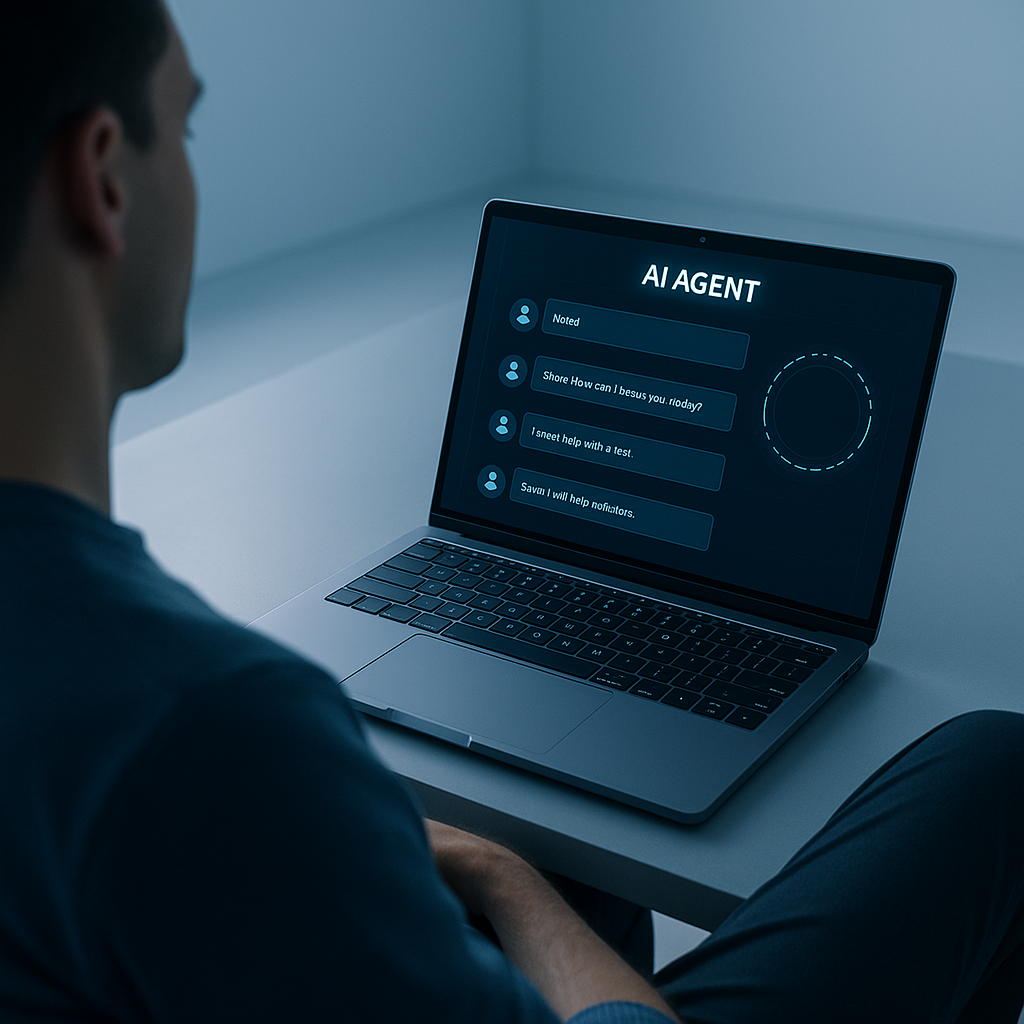Week 33: Layoffs, skyrocking valuations, Privacy Risks & Workforce Reinvention
Welcome to the weekly Gedankenfabrik AI update. This week, industry turbulence and billion-dollar bets put AI’s disruptive power on full display. A new wave of AI-driven layoffs is reshaping the workforce, while investors scramble to back AI unicorns at staggering valuations. At the same time, privacy risks from the next generation of AI assistants are raising alarm bells, and global enterprises double down on upskilling their people for the coming “AI-native” era. Below, we break down the week’s pivotal events and what they signal for the future of business and technology.
AI-Driven Layoffs Restructure the Tech Workforce
The tech industry is undergoing its sharpest workforce transformation in years, with generative AI and automation cutting tens of thousands of jobs across roles and seniorities. For the first seven months of 2025, over 10,000 layoffs were directly attributed to AI adoption, with the overall tech sector announcing more than 89,000 job cuts, a 36% bump over last year. Companies like TCS, Intel, Microsoft, and Scale AI have cited AI-driven restructuring as a main motivation for reductions that extend beyond back-office roles to encompass management and non-AI software jobs. Meanwhile, demand for AI and ML specialists is soaring, with top talent now earning over $300,000. The industry is splitting: those with in-demand AI skills rise rapidly, while others face increasing insecurity. Consider it the workplace equivalent of a high-speed train: those on board accelerate, while those left behind watch it vanish on the horizon.
Billion-Dollar AI Bids: M&A and Startups Drive Explosive Growth
The last few days held a frenzy of billion-dollar funding rounds, mergers, and acquisitions. The AI arms race is only accelerating. Reka AI hit a $1 billion valuation after raising $110 million, and Perplexity AI stunned the market with an $18 billion round. On the M&A front, AMD closed a $4.9 billion acquisition of ZT Systems, while SoftBank made a $6.5 billion move for Ampere, and Meta quietly expanded its conversational AI portfolio. Amazon, Apple, and Google made new AI pushes ranging from grocery delivery and smart devices to a $9 billion commitment for new AI initiatives. Take the past few days as the “IPO dotcom boom redux”, but this time, AI is the main event, and global giants aren’t just spectators.
Cohere Raises $500 Million To Double Down on Secure Enterprise AI
Hot on the heels of these blockbuster deals, Cohere cemented its position as an enterprise GenAI powerhouse, raising $500 million at a $6.8 billion valuation. The company is capitalizing on market demand for secure, sovereign, and compliance-first AI platforms for businesses and governments. Cohere’s strategy—targeting “agentic AI” that automates business tasks while locking down security and data sovereignty—shows how the next battle for AI leadership will be fought as much on privacy and compliance as on capability. By recruiting prominent leaders like Joelle Pineau (ex-Meta FAIR) and building strategic partnerships with Oracle, Dell, and SAP, Cohere’s playbook reflects a clear message: the AI platform game isn’t just about size or scale, but about trust—something many enterprise buyers prize above all.
Santander Sets Benchmark: Mandatory AI Training for All Employees
In a bold move to future-proof its workforce, Santander announced that it will require all global staff to complete AI training starting in 2026. With an AI transformation agenda ranging from back-office copilots to automated CRM and hyper-personalized services, the bank is partnering with OpenAI and embedding AI copilots into over 40% of its contact center interactions. Santander’s €400 million investment and universal training requirement marks a sharp contrast with most European firms, where just 39% of employees receive formal AI education (compared to 52% in the US). This proactive approach is like an enterprise-wide “digital literacy vaccine” aiming to ensure no one is left behind as AI upends traditional banking roles and workflows.
AI Browser Assistants: Convenience at the Cost of Privacy?
A fresh wave of academic research has thrown a spotlight on AI-powered browser assistants such as ChatGPT, Google, Merlin, or Copilot and has exposed their deep privacy risks. These tools often transmit full webpage content (including medical or banking details) to external servers, record form entries with sensitive information, and enable profiling and third-party tracking, sometimes contravening US regulations like HIPAA. While only Perplexity was found to steer clear of most profiling and third-party sharing, the broader trend is worrisome: with convenience comes exposure. The analogy here is a digital concierge who fetches information for you, but also keeps a personal copy of your house keys—with the potential to share them with others, often unbeknownst to the homeowner. Businesses and consumers alike need to weigh usability against safeguarding sensitive data in this new era of AI-driven assistance.
This week’s news cycle captures AI no longer as an isolated disruptor, but a central force redefining jobs, enterprise strategy, and data stewardship in real time. As AI becomes more deeply woven into every industry and mirrors the electrification of economies a century ago, those who rapidly adapt, invest in learning, and prioritize security will be best positioned to navigate its risks and seize its rewards. In this environment, smart strategy means not just chasing the next big thing, but building resilient, future-ready organizations. Until next week, stay strategic and watch the accelerating edge of a new technology rising.





